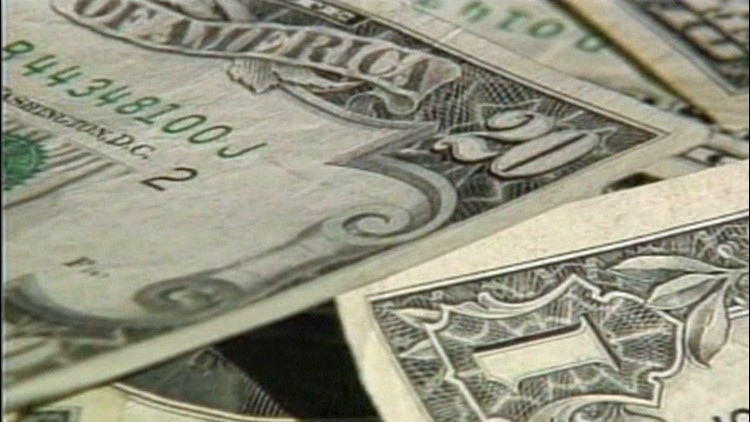SEATTLE — Editor's note: The above video was originally published in October 2018.
The turn of the decade will bring several new laws in Washington state, including a minimum wage increase that starts on Jan. 1, 2020.
The new minimum wage in 2020 will be as follows:
- Large employers in the city of Seattle: $16.39 per hour.
- Small employers in the city of Seattle: $15.75 per hour or $13.50 per hour if they pay at least $2.25 per hour toward the employee’s medical benefits or the employee earns at least $2.25 per hour in tips.
- Washington voters passed Initiative 1433 in 2016, setting increases to the state’s minimum wage every year from 2017 to 2020, when it will reach $13.50 an hour.
In 2019, large employers in Seattle with 501 or more employees paid a minimum wage of $16 per hour and small employers in Seattle with 500 or fewer employees paid a minimum wage of $15 per hour.
If those small employers paid at least $3 per hour towards the employee’s medical benefits and/or the employee earned at least $3 per hour in tips, the minimum wage was $12 per hour. Large employers followed this two-tiered system in the past but stopped in 2019.
The city of SeaTac will raise its minimum wage to $16.34 per hour in 2020. It was previously at $15.64.
The city of Tacoma will require employers to use the state's higher minimum wage of $13.50 per hour in 2020. It was previously at $12.35 per hour in 2019.
In Washington, there are a few types of employees that employers can pay less than minimum wage.
According to Labor and Industries, these exceptions include:
- Workers with Disabilities
- However, beginning in July 2020, state agencies cannot pay workers with disabilities less than minimum wage
- Learners
- This includes people learning while on the job, but the employer must prove that certain conditions are met and that there are no experienced workers available
- Student Learners
- Includes students working in part-time vocational training programs or job training programs that correspond with the worker’s education
- Student Workers
- Includes students working part-time at a “qualified educational institutional” to help pay for school costs. This worker cannot have been hired in place of an experienced worker
- Apprentices
- Includes those working in jobs/vocations that require an apprenticeship
The federal minimum wage has remained at $7.25 since 2009, but the House recently voted to increase it to $15 by 2025.



